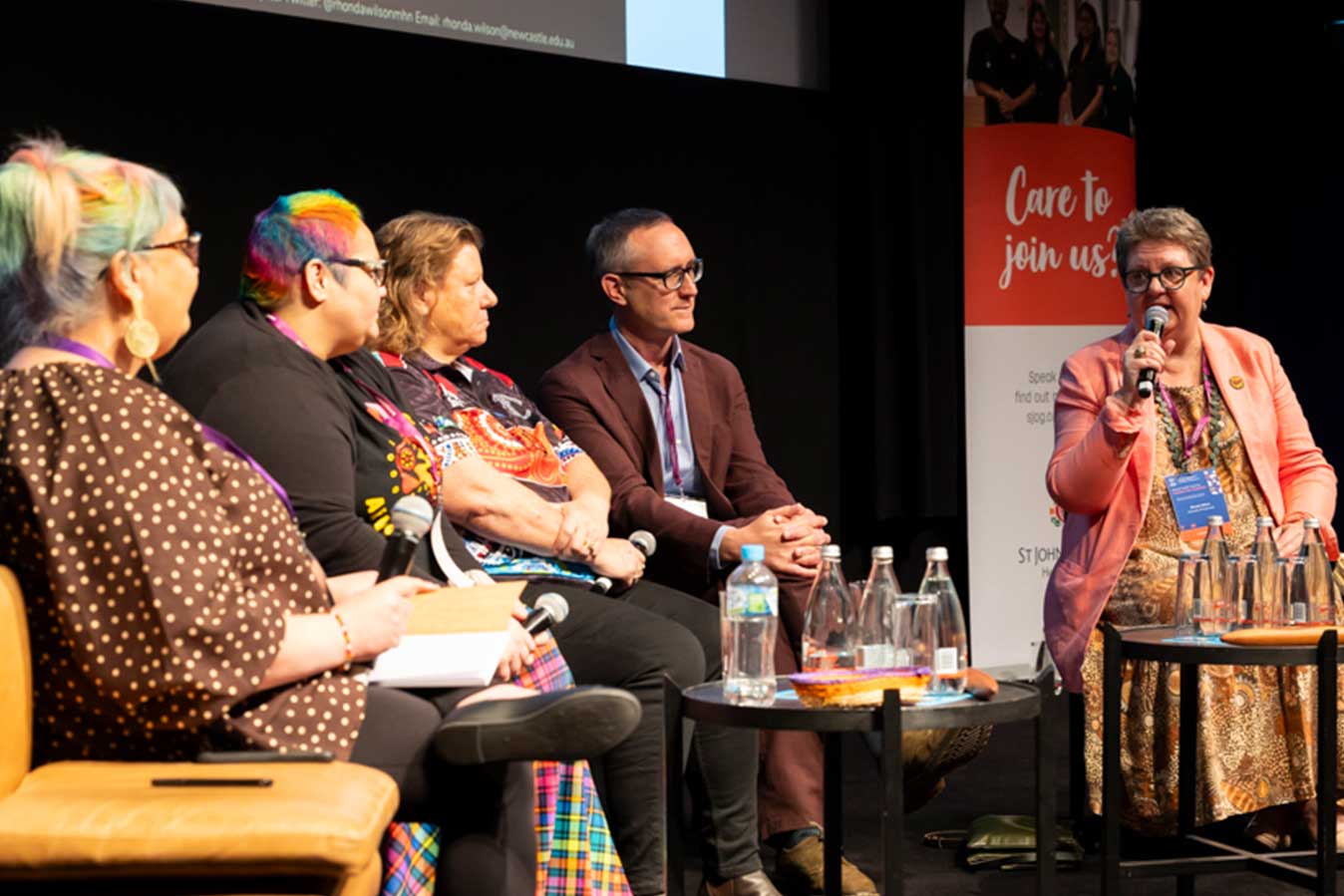What does a positive future for Australia’s mental health nurses look like and, equally important, how can it be achieved? It’s a complex question that was posed to a panel of leading experts at last Friday’s Australian College of Mental Health Nursing (ACMHN) 47th International Mental Health Nursing Conference in Melbourne.
According to Nathan Dart, Mental Health Nursing Advisor, Office of Chief Nurse and Midwifery Officer Queensland, influencing the scope of practice of mental health nurses nationally requires working as a collective to promote the specialty and increase its voice. He listed standards for practice as a key area for potential reform.
“If we can contemporise those, review, and do that collectively, that might give us a platform to start looking at interstate, or even a Commonwealth scope of practice, and get mental health nursing recognised as mental health nursing, and not a subset of another nursing cohort,” he said.
Fellow panellist Monica Taylor, Executive Director Mental Health Nursing, Western Australian Mental Health Commission, implored all mental health nurses, not just those in senior positions, to play a role in influencing policy to reach a more positive future. She said networking and building alliances within mental health policy were critical to bringing the specialty to the forefront.
“Networking is incredibly imperative to gain a profile of what the mental health nurse can do in a variety of settings, not just in mental health, but what the opportunities are going forward, for example in sexual health, and some of those other things that we maybe haven’t thought of before but maybe we can actually have a presence in and grow our workforce to be specialist in more areas than we are already.”
“Don’t wait for an invitation is my key message,” she concluded.
“You won’t always get an invitation because they won’t even know you exist sometimes. So lean in, and see what influence you can have.”

Asked what changes in education preparation offer the best chance of a positive mental health nursing future, Kim Foster, Professor & Eileen O’Connor Chair of Mental Health Research, admitted it was a “vexed issue” that the College had so far been unable to agree on.
According to Professor Foster, undergraduate Bachelor of Nursing programs are crucial as they are currently the main driver of attracting nurses to work in mental health.
“They are also now, because they are comprehensive programs, meant to provide basic theoretical and placement experience for student nurses to prepare them to walk into a mental health service. After that, transition programs have to pick up the slack.”
Seeking evidence on how effective undergraduate nursing programs are at providing students with adequate mental health theory and placement experience to prepare them for practice and attract them into the field, Professor Foster’s latest research, published last week, found the majority of Australian universities are not doing enough.
The survey of 44 mental health nursing academics across Australia found participants considered the current mental health content, theory and clinical hours insufficient to prepare graduates for practice in mental health settings. They also reported a lack of mental health nurse academics to teach content effectively. And interestingly, most were dissatisfied with the current comprehensive approach to nurse education and favoured a double degree (nursing and mental health nursing), or a direct entry mental health nursing program.
Addressing over 600 delegates, Professor Foster stressed some universities were getting it right, meaning improvements to the current education pathway were possible.
“There’s something to be said for, what is it about these universities,” she posed.
“What are the factors that are enabling those universities to provide at least one, if not two theory units, and enough clinical placement in a mental health area, not in general nursing and calling it mental health, not even in aged care, which is its own speciality, but in a mental health setting, because that’s where we attract nurses into the field.
“Our evidence, so far, tells us the comprehensive program is failing in that purpose for mental nursing. That is not because it can’t succeed. It’s not because comprehensive nursing education is not a good idea. It’s because it has not been actioned appropriately, it hasn’t been resourced enough in universities and in health services, to enable it to function well for our purposes, for our profession.”
Professor Foster conceded that a return to a direct entry mental health nursing program was unlikely to gain traction in the current environment. Instead, as her new research argues, a double degree in nursing and mental health may provide the most feasible additional pathway to attract nurses to work in mental health.
“People often say, it’s either direct entry or comprehensive… no it isn’t,” she declared.
“We need multiple pathways. So for me, for the future, I would say we retain the comprehensive [nursing] program but we try to improve it as far as we can.”
Discussing the place for advanced practice roles within mental health nursing, panellist Matt Ireland, ACHMN Council of Branches Chair, and an NP working in private practice, said demonstrating that there is a world beyond working in an inpatient unit, or within a community mental health team, could potentially help recruit more nurses into the field.
“Advanced practice, I think, is how we’re going to educate service users out there in the world, that this is what we’re capable of. And with that, we build those aspirations.”
Looking further ahead, as emerging digital platforms such as AI and ChatGPT become more widespread, Professor Rhonda Wilson, Deputy Head of Nursing and Midwifery School, University of Newcastle, said transformational change within the digital space currently taking place would prove crucial in mental health nursing’s efforts to forge a positive future.
Professor Wilson said mental health nurses needed to embrace the acceleration of new and emerging digital technologies, or face being left behind.
“Our voice needs to be in policy, it needs to be at the table, we need to know enough in order to make reasonable contributions to the design,” she explained.
“[But] we still need to use our human, our interpersonal; our clinical judgment. That is never going to go away.”








